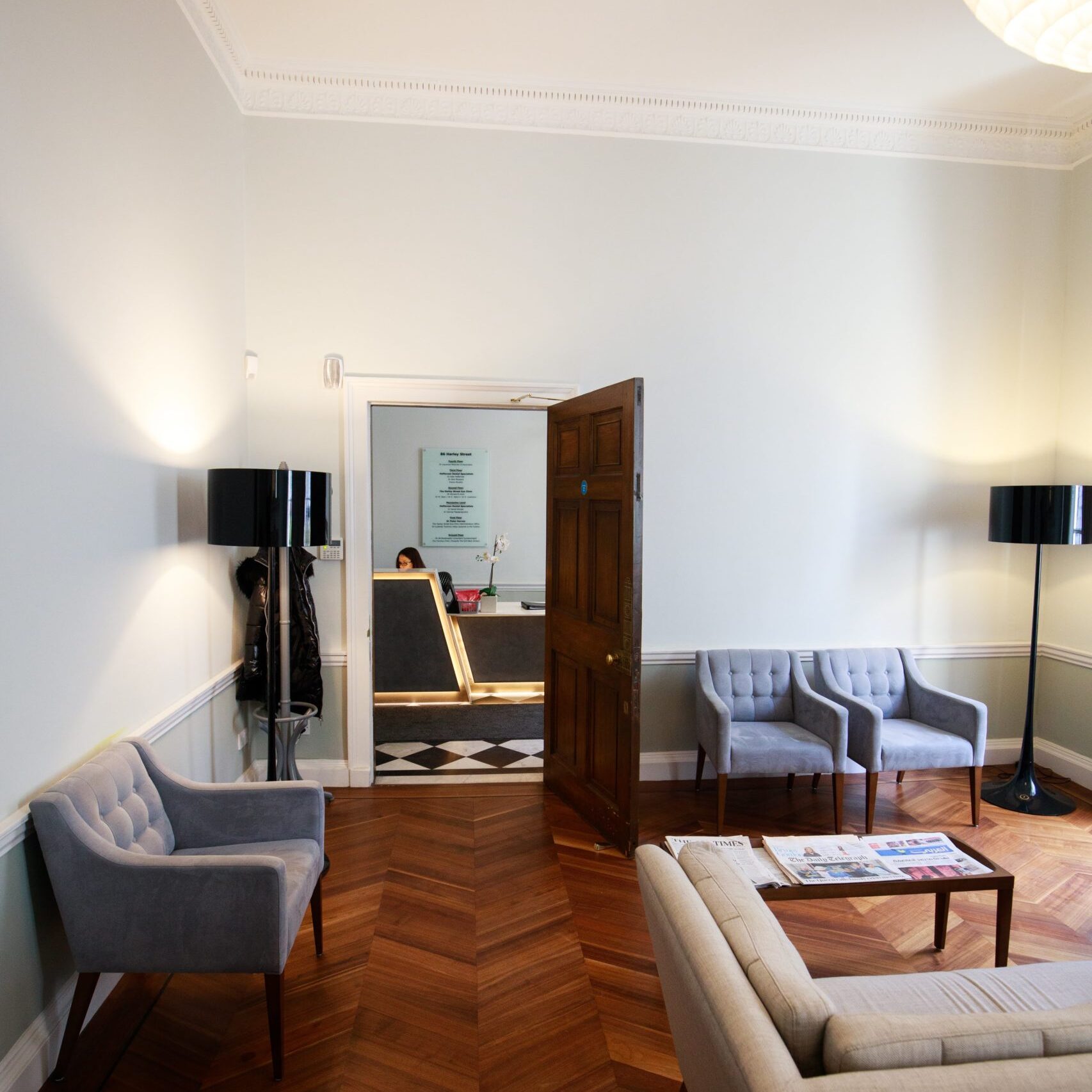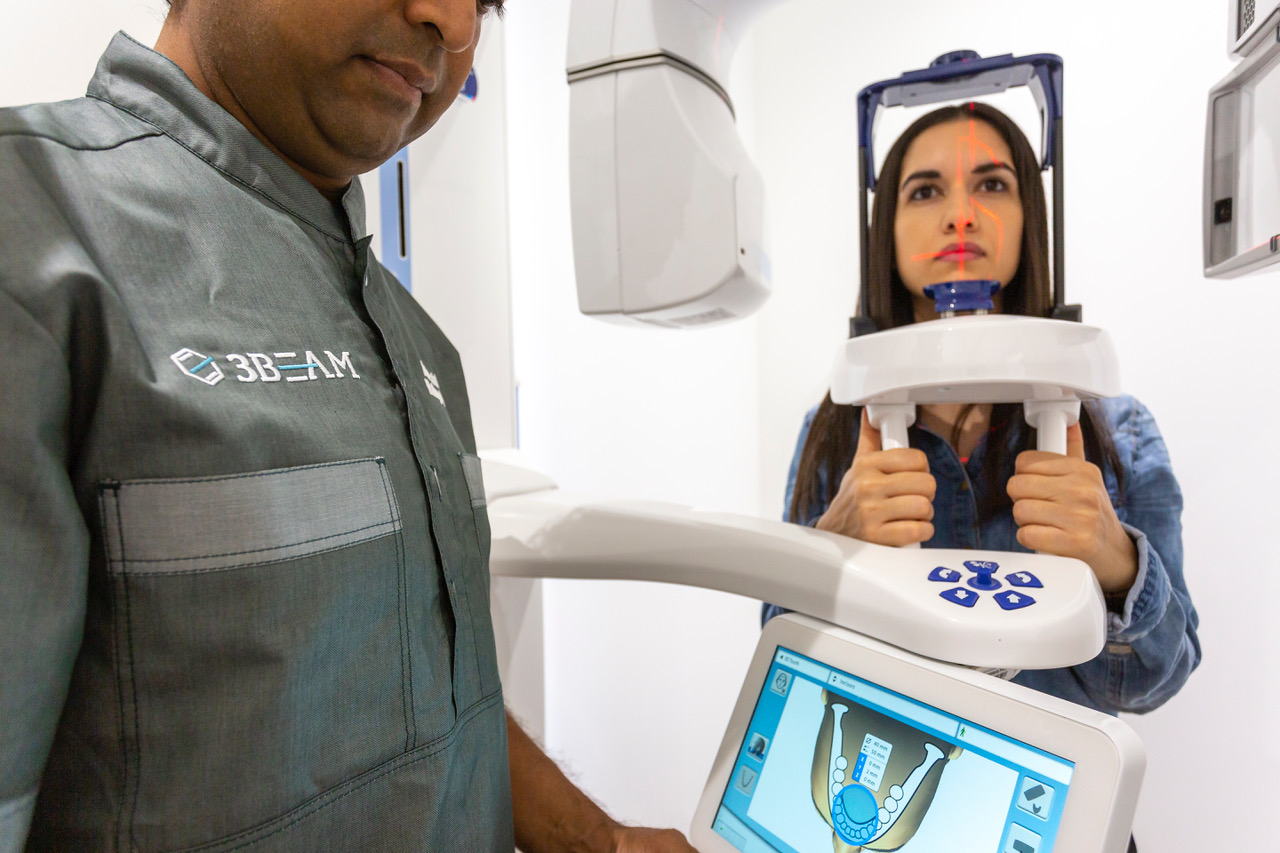Having a cone beam CT scan
A cone beam (CB) CT scanner uses x-rays and computer-processed x-ray information to produce 3D cross-sectional images of the face, jaw, teeth or upper neck area. It is a smaller, faster and safer version of the regular CT scanner. Through the use of a cone shaped x-ray beam, the radiation dosage is lower, and the time needed for scanning is reduced.
The machine moves around your head in a circular motion in a similar way to the panoramic radiography unit which is commonly used in dental surgeries and hospitals.

What happens during cone beam CT (CBCT)?
You will be either standing or seated in the CBCT machine. Your head will be carefully positioned and you will be asked to keep absolutely still while the scan is taken. We will ask you not to swallow, talk or move your jaw during the exposure. The positioning takes a few minutes, but each scan takes less than a minute to perform. You may need more than one scan depending on the reason for your examination. The whole procedure should not take more than 15 minutes
Why should I have a CBCT?
The scan will give us detailed information which cannot be obtained from normal x-ray examinations. For example, if you are being considered for dental implants or other special procedures, it enables us to assess the exact shape of the bone
How about radiation?
Cone beam CT (CBCT) scans are low-dose examinations and give an X-ray dose to the patient that is normally considerably less than a medical CT scan.
www.xrayrisk.com helps to calculate the additional risk of cancer from a 4x4cm dental CBCT scan to an average 40-year-old female. The baseline risk of a cancer is 37.5% (1 in 3) for women and a scan will add a further risk of 0.000285% (1 in 350,887). That is one hundred times less risk than being hit by a meteorite (1 in 3,200).
A CBCT scan of the jaws would be comparable to approximately 6 to 30 days of normal background radiation.
From dosimetry carried out on our scanner the calculated average dose of the smallest scan was 0.028mSv (Morita X-ray Dosage Information). Based on these figures a 4x4cm Morita scan is equivalent to 4 days of background radiation living in London or just over 1 day living in Cornwall (yes, Cornwall has 3 times the UK average due to the granite rocks!)
As with any x-ray examination, please inform the radiographer if you might be pregnant

Are there any alternatives?
Yes – medical CT is the alternative, but this delivers a greater radiation dose. Another alternative is not to undergo the x-ray examination at all, but without this examination it may not be possible using traditional dental x-ray pictures to assess the bone accurately enough to allow your treatment to be performed safely
